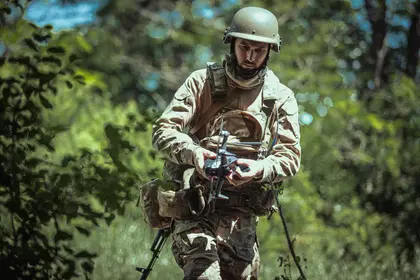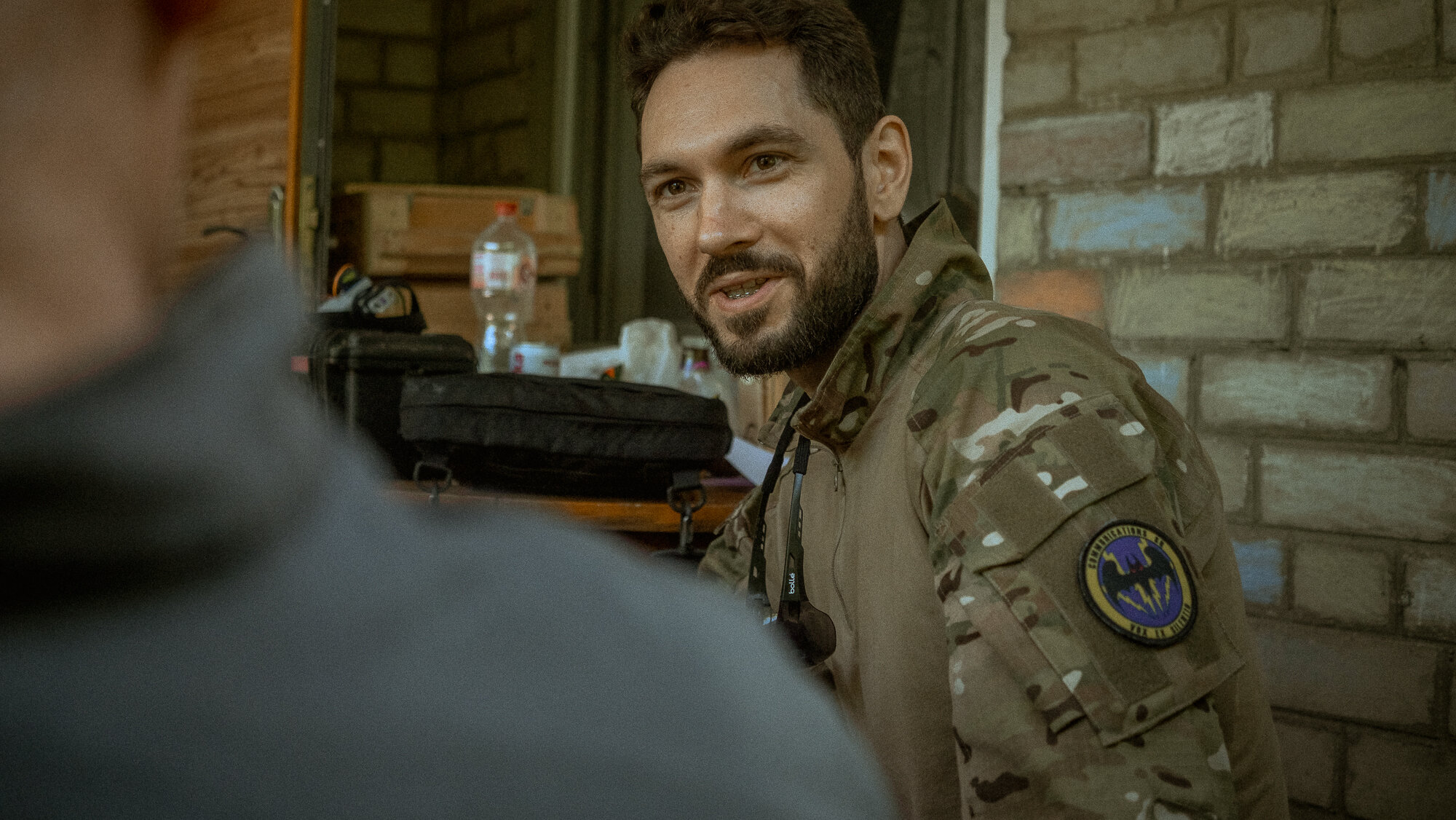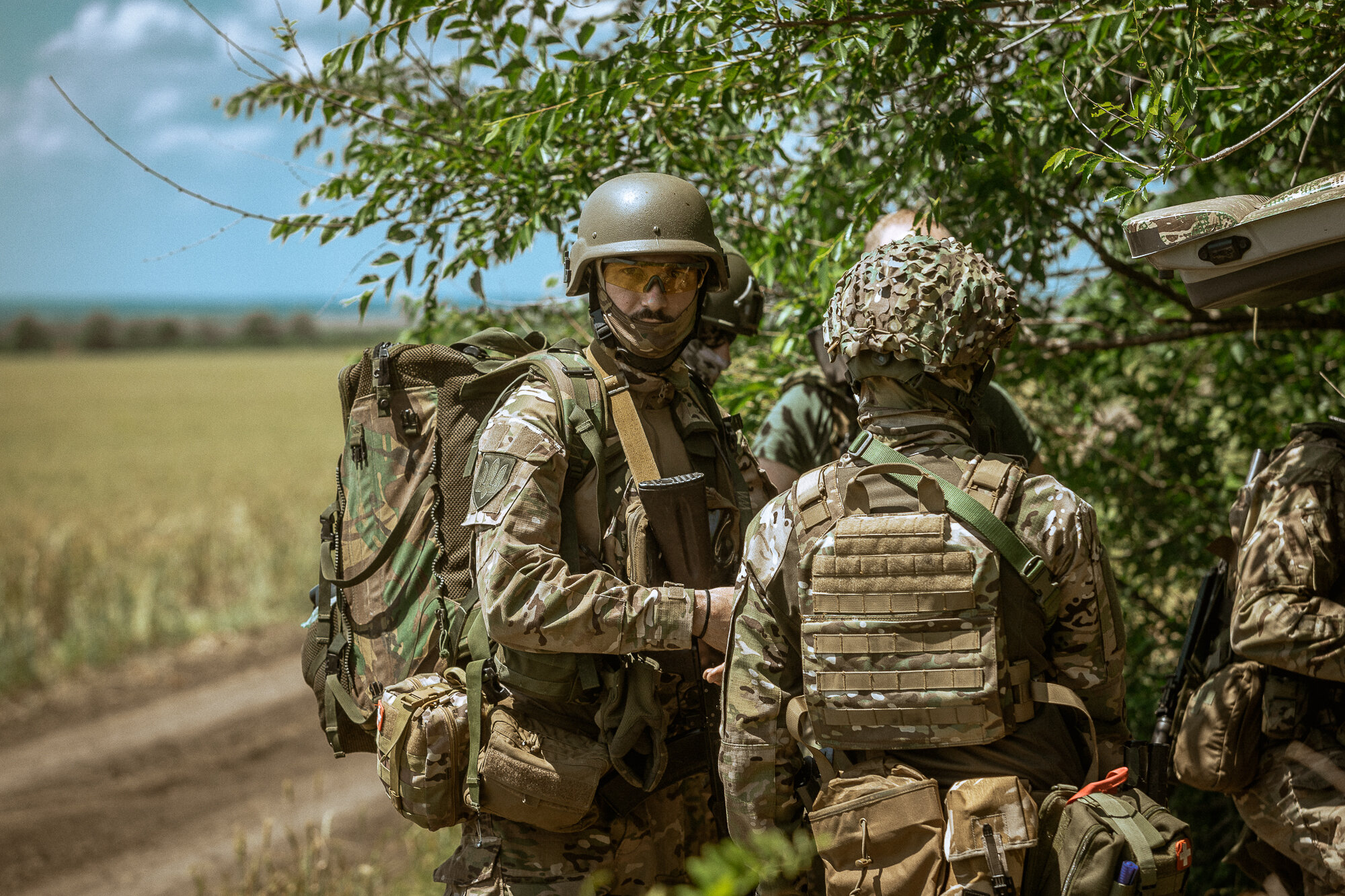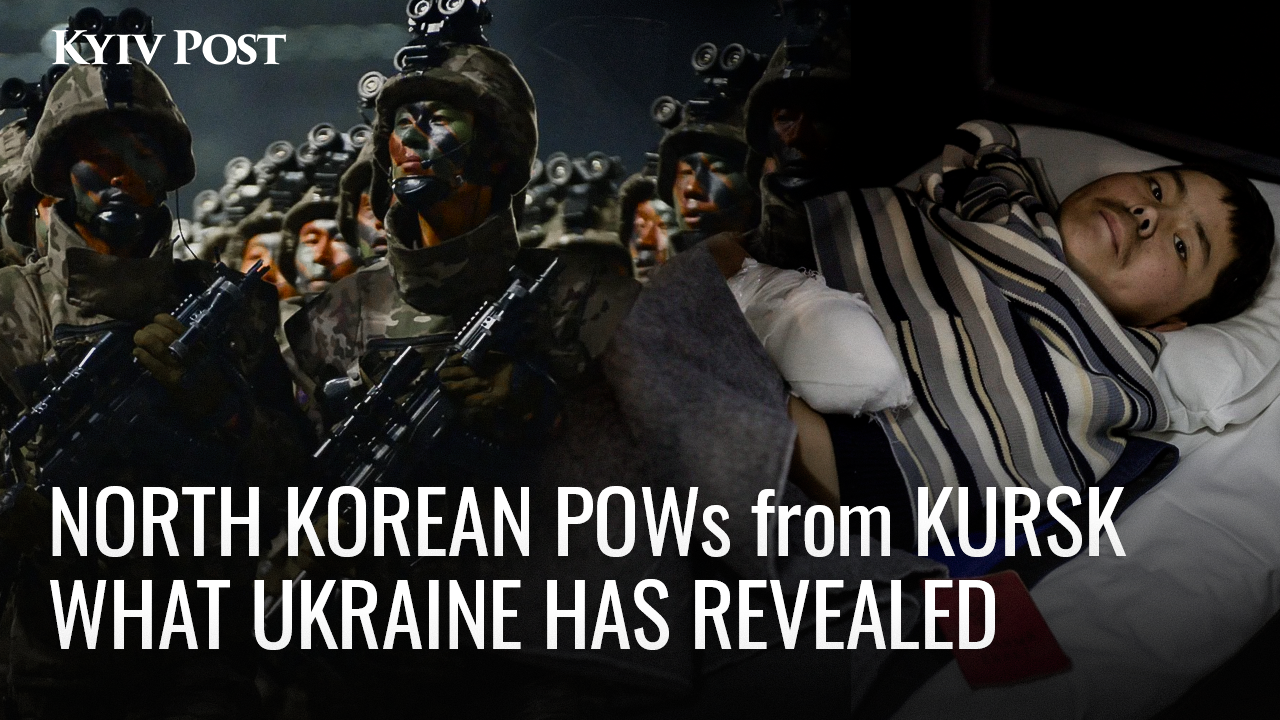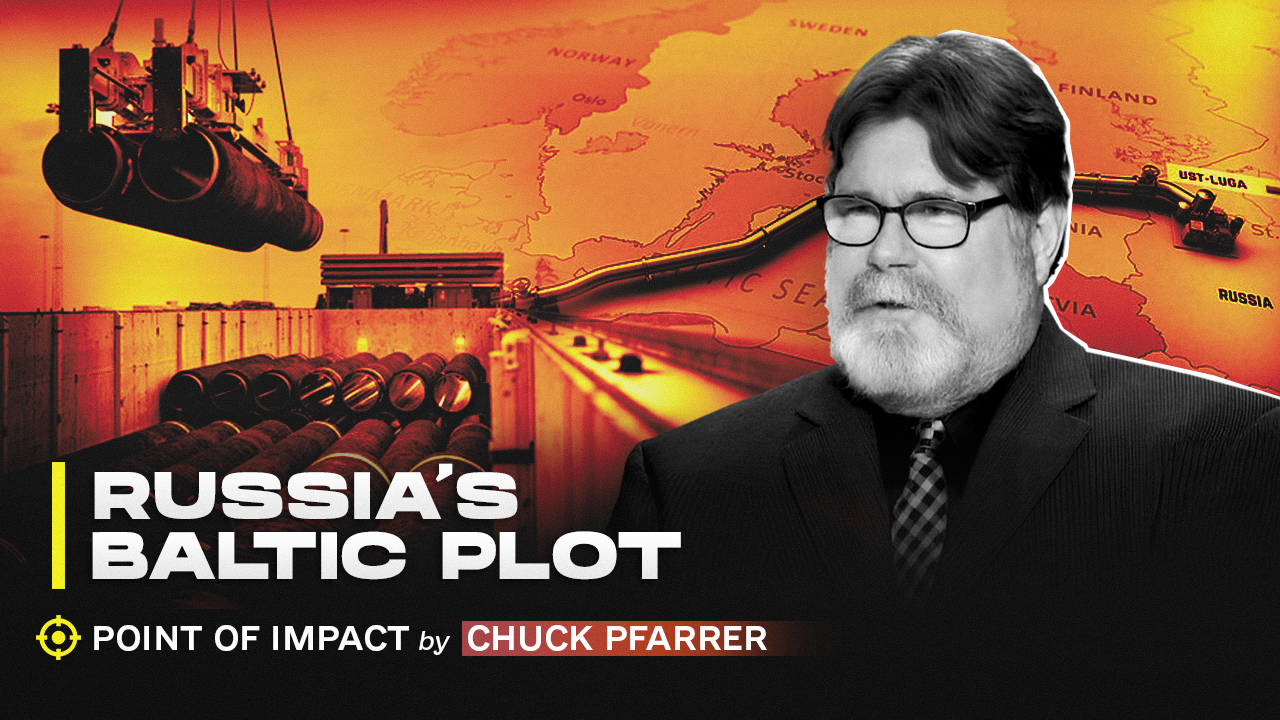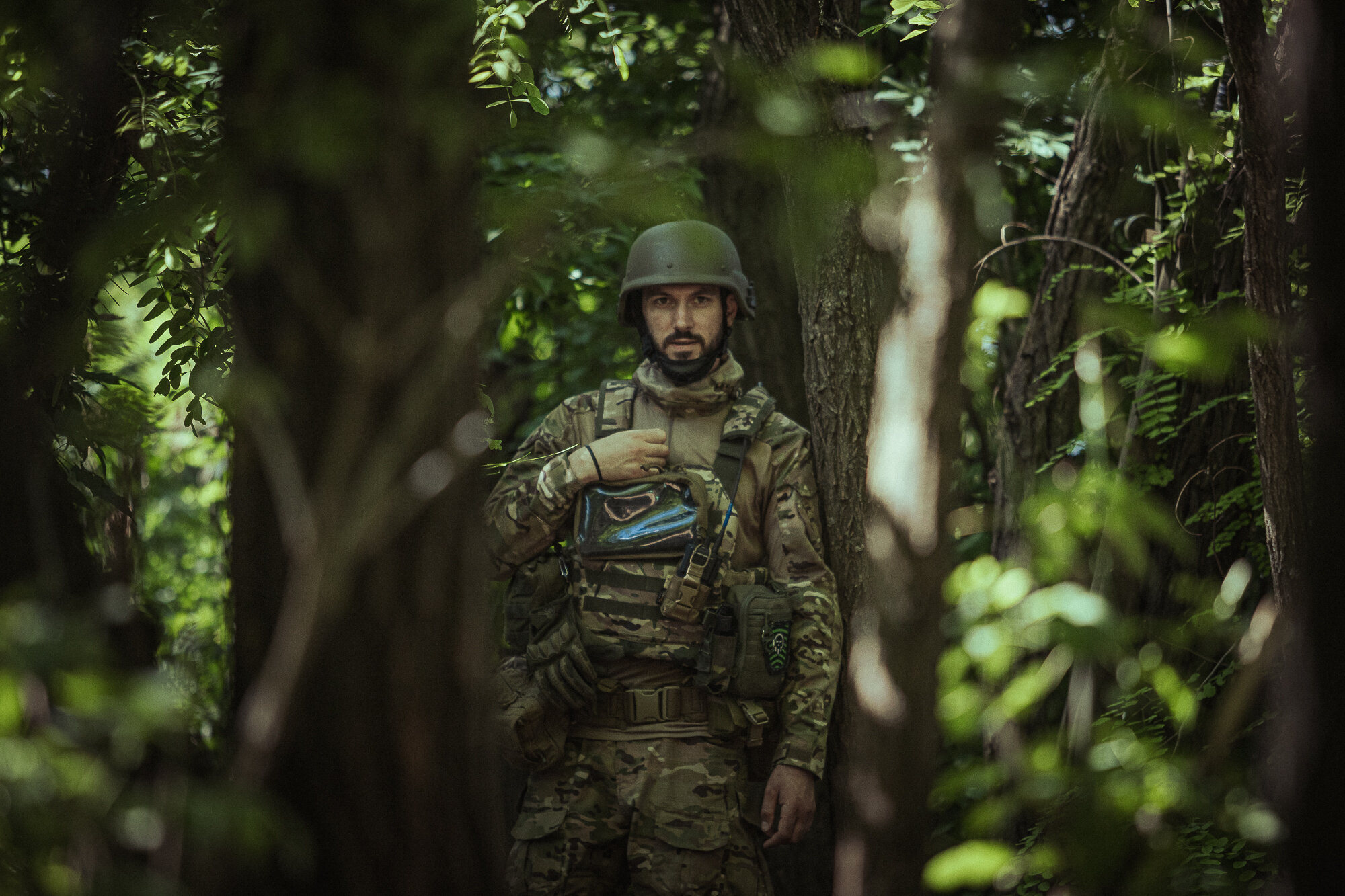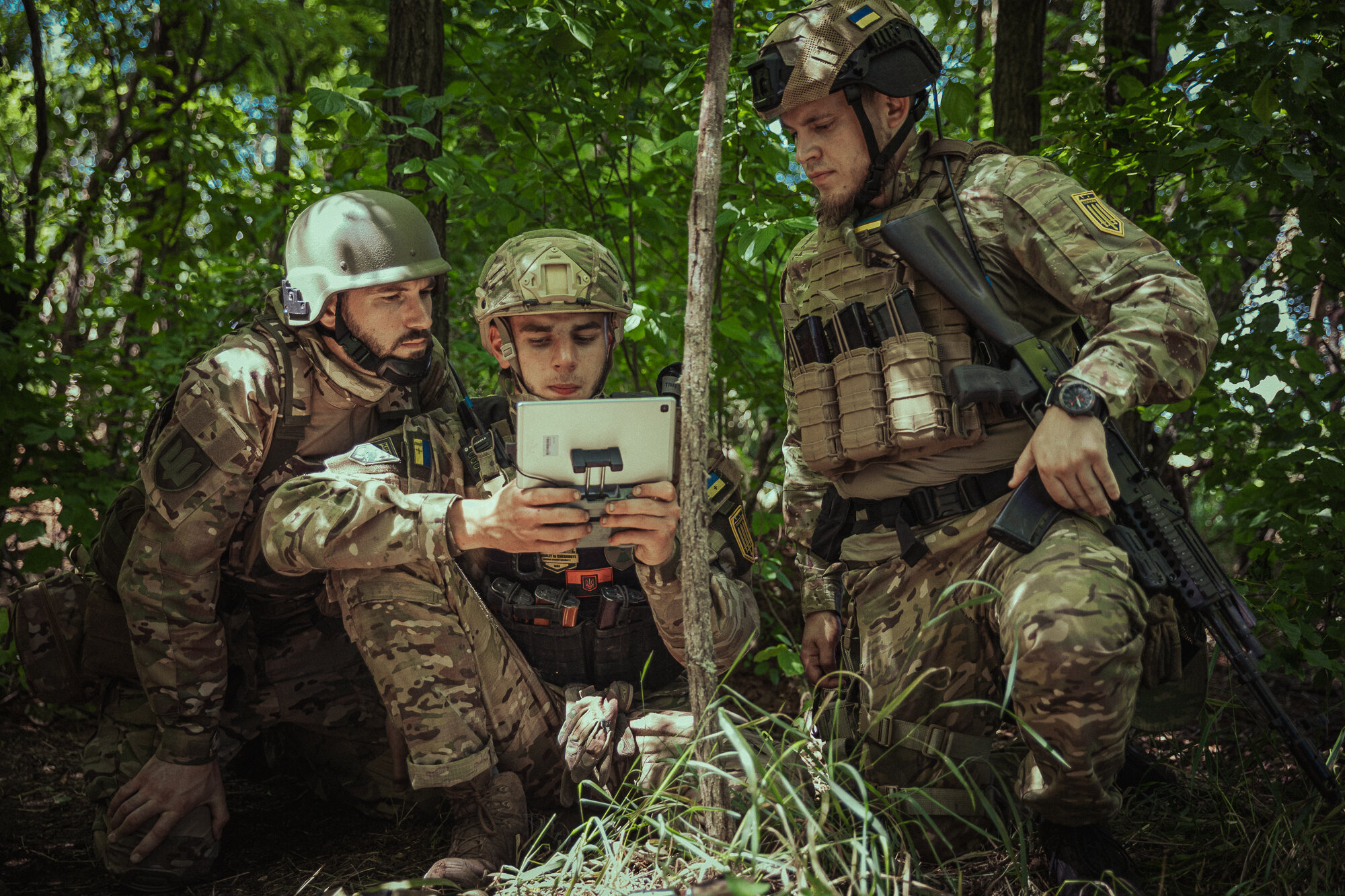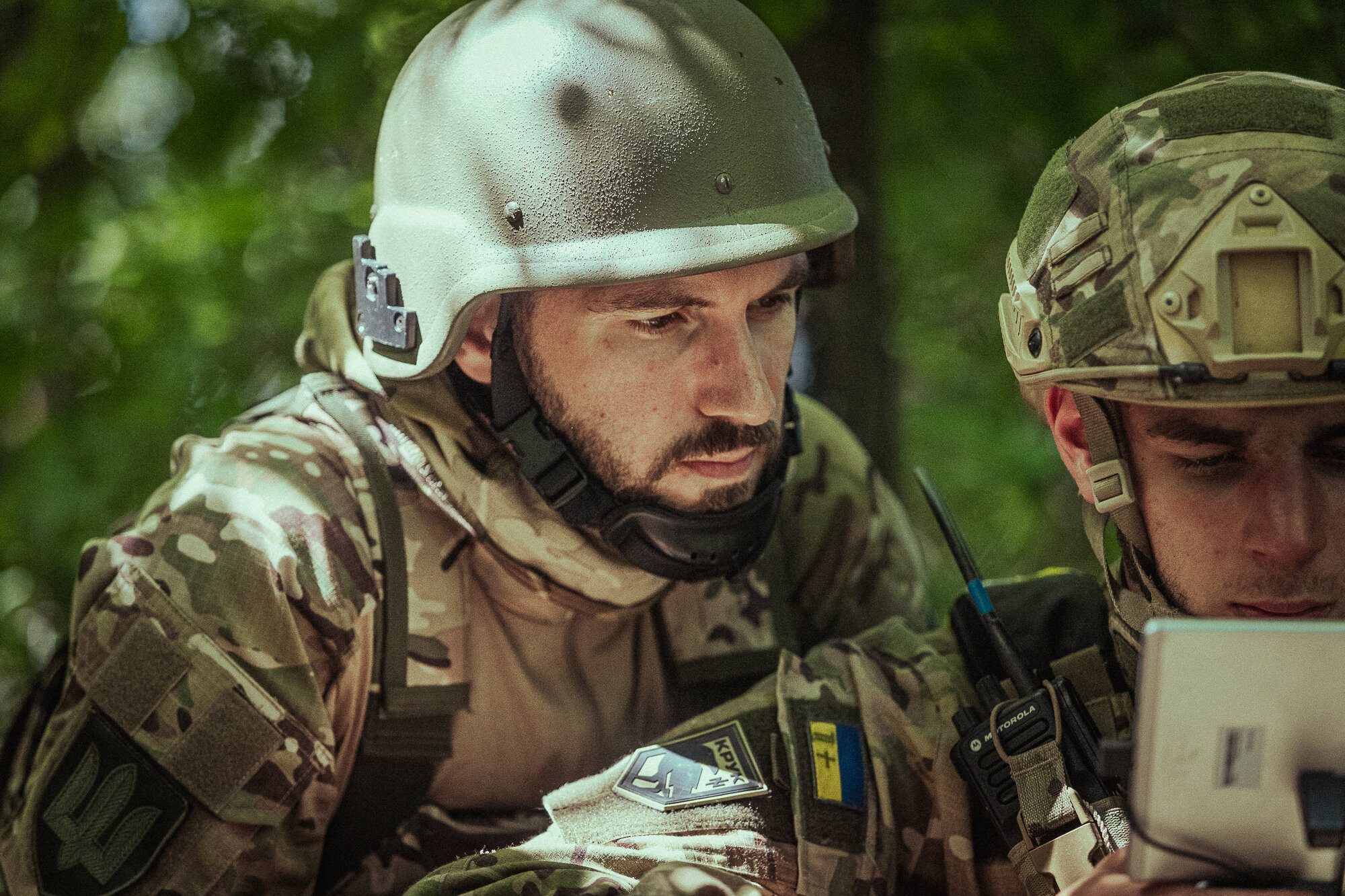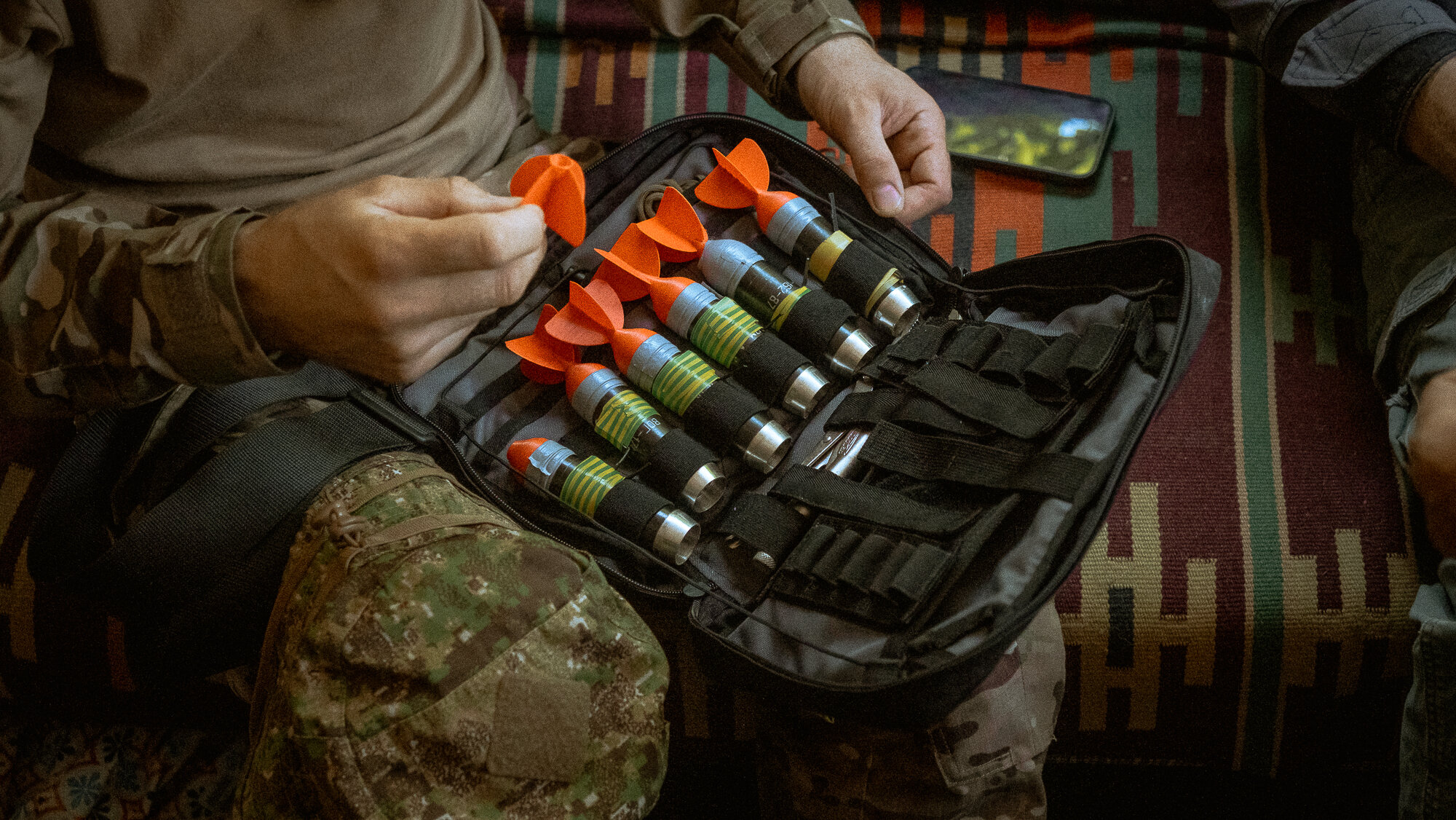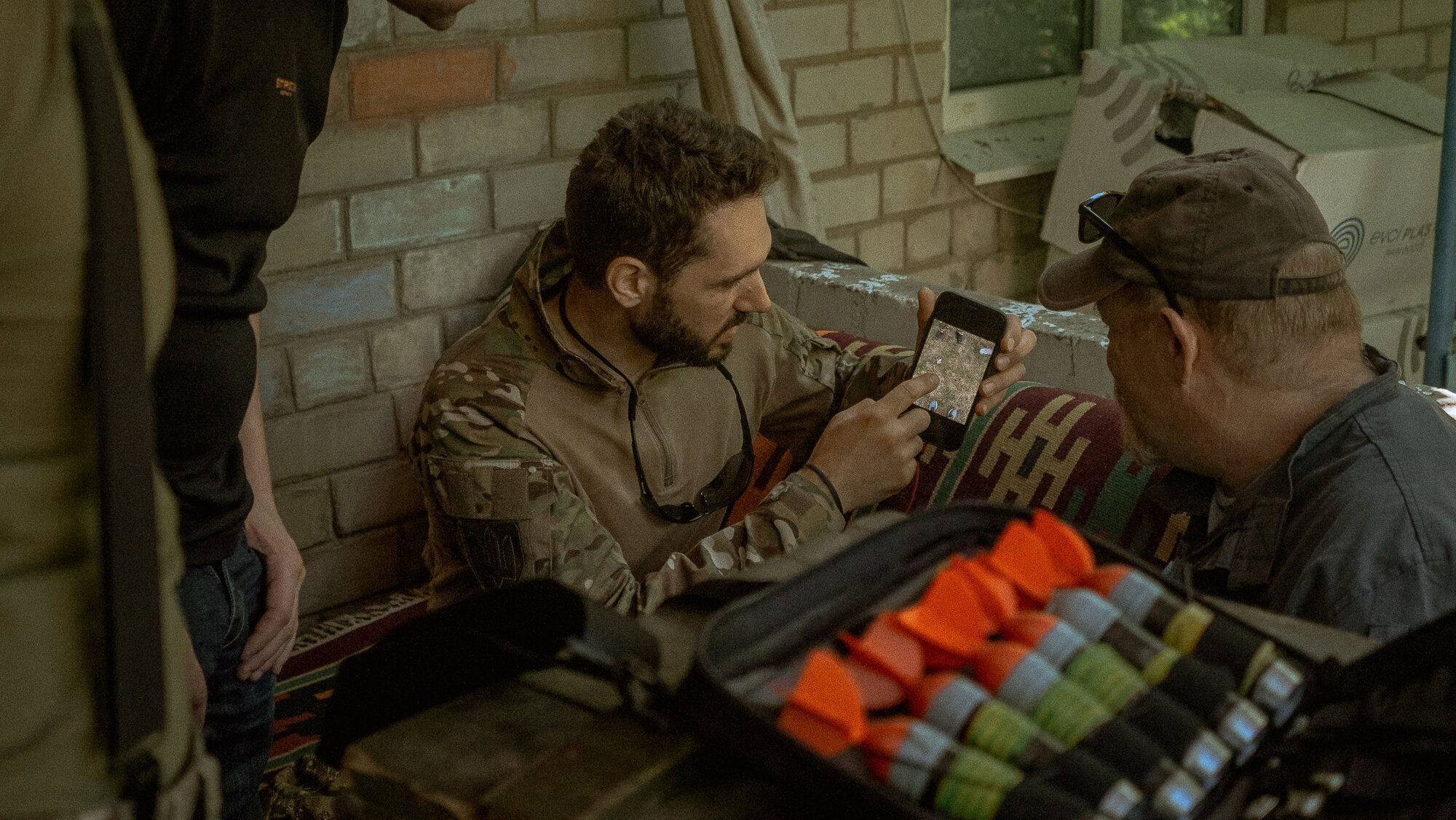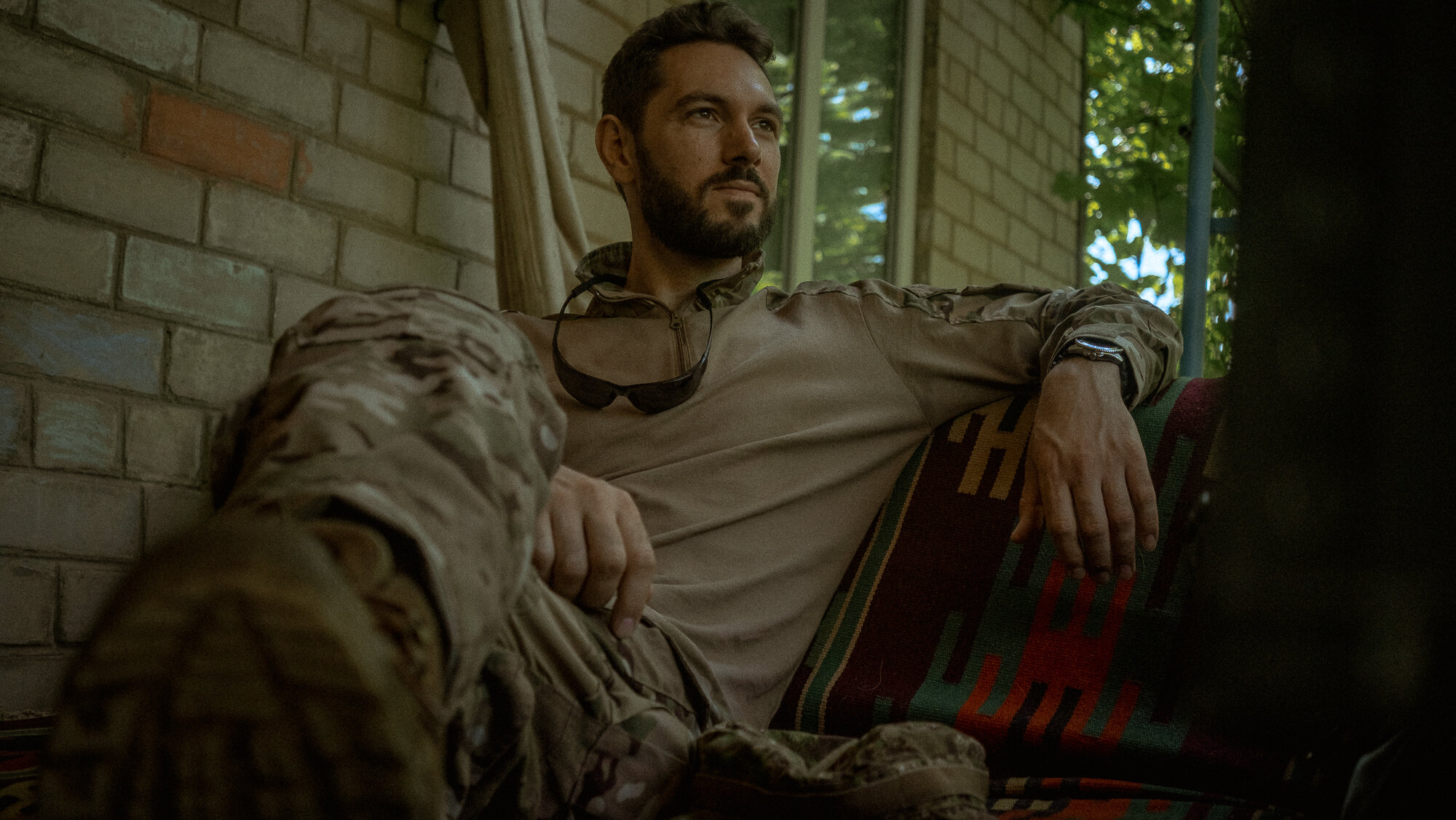Viktor Pavlov’s war job is finding Russian Federation (RF) soldiers and weapons, so that other members of the Ukrainian army can destroy them. By almost any standard, he’s a professional.
Pavlov, 36, is a member of a reconnaissance unit numbering full strength at around 20 men – the eyes and ears of the Azov Special Operations Forces (SSO) Regiment. Unlike the Azov Regiment that fought in Mariupol, a National Guard formation at war since 2014 in south Donbas, Pavlov and his mates were all civilians living peaceful lives, mostly in the greater Kyiv area, when the Russians invaded Ukraine on Feb. 24 and began their assault on the capital.
- See the most contemporary Ukraine news reports for today.
- Look at the latest Ukraine news that was released today.
JOIN US ON TELEGRAM
Follow our coverage of the war on the @Kyivpost_official.
Through friends, Pavlov learned that Azov members and supporters in Kyiv were forming a Territorial Defense Battalion as part of the national defense plan. The idea was to turn the battalion, at this point armed civilians barely able to fire their rifles, into a disciplined fighting unit. Patriotism was at a crescendo, and for each spot in the unit there were five applicants.
Pavlov, fortunately according to him, had studied three years in Kyiv’s elite Suvorov military academy before abandoning a potential army career to go into business in the clothing and merchandise field. He had 12 stores. He wasn’t an Azov member himself, but, with military experience in short supply, and the Russians closing in, his past studies as a military cadet were adjudged sufficient to make him a new member of the unofficial Azov Kyiv territorial defense battalion.

Trump Comments Calling for Kremlin Concessions Ignites Firestorm of Russian Objections
As the Russian army moved south in March, Pavlov, like thousands of husbands and father volunteers manning the capital’s barricades, learned on the job how to stand watch, shoot straight, dig a fighting position, evade artillery fire and ambush Russian patrols. At the same time, as was also the case for many in his unit, he had to plan, organize, pay for and remotely supervise the evacuation of his family.
Pavlov’s partner, his eight-year-old daughter and five-year-old son wound up in Spain. The children need to go to school, and to do that they have to learn Spanish, he said.
By the time the Russians abandoned their Kyiv offensive, the Azov Territorial Defense battalion had grown up. Some members had quit, others were wounded or dead, but most remained in the ranks. In less than two months, the peaceful Kyiv residents were no longer peaceful. Some men became anti-tank gunners, ready and able, first shot, to burn a Russian tank at two kilometers or more, with a Javelin or NLAW missile. Others had turned into the muscle, bones and sinew of an aggressive infantry unit: riflemen, mortar operators, medics, section leaders, combat engineers, staff officers and commanders, and communications specialists.
The Ukrainian army eventually decided to reclassify Pavlov’s unit, cancelling the territorial defense identifier and designating them a Special Operations Regiment. Under normal army bureaucratic rules, in a peacetime reality, converting a pack of former civilian home guards into high skills infantry unit capable of carrying out special missions like behind-the-lines raids, and nighttime assaults, would have been unthinkable.
Pavlov is a founding member of arguably one of the Azov SSO’s most select sub-units: The Aerorozvidka platoon, or combat scouts.
No one in the unit has any obvious rank, they speak to each other using first names. One Aerorozvidka’s jobs is flying drones – almost always Chinese quadcopters costing $500-$2000.
Drones attract attention, a cheap drone’s range is short, and if a drone stays in one place too long it gets shot at. Most of the time, a drone team wishing to observe Russians must go to the very forward edge of the UAF positions. This means, for men like Pavlov who are flying the drones, potentially getting shelled, mortared or shot without medical evacuation nearby.
The last Azov SSO Aerorozvidka casualty, a death, took place during the unit’s other and more dangerous primary mission: foot patrols.
Drone video showed that, between RF and UAF positions, in no-man’s land, a pair of probably Ukrainian military corpses was lying in a wood line, near what looked like firing positions. It wasn’t clear whether the foxholes were occupied or not. A six-man foot patrol went to investigate, and discovered Russians and a firefight.
Kyiv Post was present as Pavlov and the Aerorozvidka team went through the drone video, images of the foot patrol moving in the wood line, and even flew a palm-sized drone between tree branches, looking for booby traps and foot prints and signs of Russian ambushers. Later that day, the regiment mortared a probable hiding site the team had found. It wasn’t revenge, but simply because war is the business of killing, and the first step in killing the enemy is finding him.
Pavlov said Aerorozvidka would do that job better if it had, instead of Chinese toys, proper long-range drones with thermal sight capacity and hours of loiter time, as well as kamikaze strike drones capable of taking out a tank. Professional ground patrols need encrypted communications equipment, he said, and enough time and rest to build up fitness to walk 20 km. Patrols work behind enemy lines, with soldiers sometimes burdened with packs. Reconnaissance is dangerous work that kills amateurs, he said.
As to his 12-store business, Pavlov said he has no idea when his firm might resume normal operations again. If ever.
NOTE: Kyiv Post changed the names of some persons named in this report to protect their identity. Some details about Azov tactics observed by Kyiv Post were withheld for security reasons. Subsequent to the publishing of this story Pavlychenko requested that he be identified by his real last name – Pavlov.
You can also highlight the text and press Ctrl + Enter


